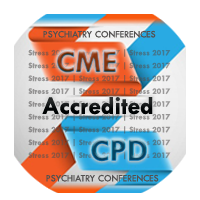Day 1 :
Keynote Forum
David Truswell
Somefreshthinking Consultancy, UK
Keynote: Has the UK Brexit decision increased stress, anxiety and depression in UK Black, Asaian and minority ethnic communities and how would we know?

Biography:
Abstract:
Keynote Forum
Torao Ishida
Suzuka University of Medical Science, Japan
Keynote: Effect and its mechanism of acupuncture stimulation at Bai-Hui (GV 20) and Yintáng (Ex-HN3) on depressed mice, rats and humans

Biography:
Abstract:
Keynote Forum
Tores Theorell
Stockholm University, Sweden
Keynote: Cultural activities in the work place

Biography:
Abstract:
- Workshop
Location: Waterfront 3
Session Introduction
David Muss
BMI Hospital, UK
Title: The International Association for Rewind Trauma Therapy

Biography:
Abstract:
Arthur G O’Malley
Mascot Child and Family Services limited, UK
Title: The Art of BART: Bilateral Affective Reprocessing of Thoughts as a dynamic model for psychotherapy across the lifespan

Biography:
Abstract:
- Stress | Stress Therapies | Trauma | Depression| Work Stress
Location: Waterfront 3

Chair
David Truswell
Somefreshthinking Consultancy, UK

Co-Chair
Tores Theorell
Stockholm University, Sweden
Session Introduction
Denny Meyer
Swinburne University of Technology, Australia
Title: Coping with Stress: Insights from an Online Mental Health Platform

Biography:
Abstract:

Biography:
Abstract:
Deen Mirza
Clinical Educator, AT Medics, UK
Title: Professional Burnout in British GPs: Themes and Lessons

Biography:
Abstract:
Marina Ziff
The Albany Centre & Mosaic Counselling Services (CIC), UK
Title: The forbidden Stress:The Stress that’s forbidden, hidden and calls for a spiritual solution

Biography:
Abstract:
Saddiga Al-Ghalib
Effat University, Saudi Arabia
Title: Depression, Anxiety and Stress among University Students: The Case of Jeddah, Saudi Arabia

Biography:
Abstract:
Jacqueline A Hinds
Society of Emotional Intelligence, UK
Title: Leading Transformation in Healthcare and the role of Emotional Intelligence

Biography:
Abstract:
Andrew Firestone
Psychiatrists in private practice, Australia
Title: Stress at work: Psychodynamics in asymmetrical work relationships

Biography:
Andrew Firestone (MRCPsych, FRANZCP) is a Family Therapist and doing his private practice in Melbourne. He has interest in Cultural Psychiatry.







